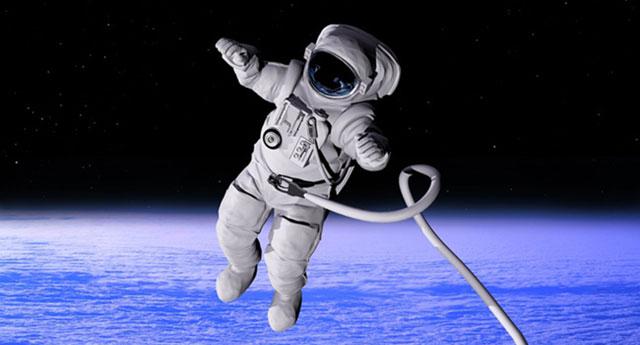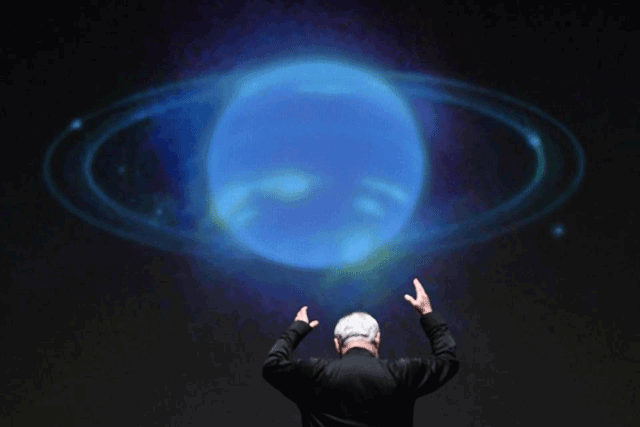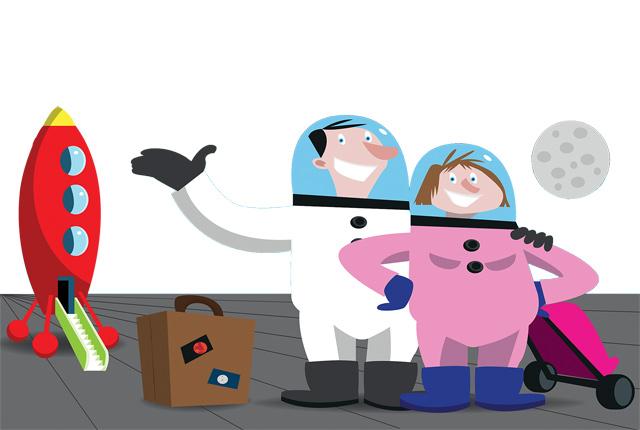You are here
Space radiation may harm astronauts’ brains
By AFP - May 02,2015 - Last updated at May 02,2015

MIAMI — Flying people to deep space — like Mars or an asteroid — is high on NASA’s wish list, but research on mice suggested Friday that extended radiation exposure permanently harms the brain.
Central nervous system damage and cognitive impairments were observed in lab animals that were exposed to highly energetic charged particles — similar to the galactic cosmic rays that astronauts would encounter during long space flights — said researchers at the University of California, Irvine.
“This is not positive news for astronauts deployed on a two- to three-year round trip to Mars,” said lead author Charles Limoli, professor of radiation oncology in UCI’s School of Medicine.
“Performance decrements, memory deficits, and loss of awareness and focus during spaceflight may affect mission-critical activities, and exposure to these particles may have long-term adverse consequences to cognition throughout life.”
Currently, the world’s astronauts rotate in shifts that last about six months at the International Space Station (ISS).
In March, US astronaut Scott Kelly and Russian cosmonaut Mikhail Kornienko began the first year-long mission at the orbiting research outpost to test the impact of longer spaceflights on the body and mind.
NASA is aiming to send people to Mars in the 2030s, but sceptics say the technology is nowhere near ready, nor is it clear that such travel would be safe for people to undertake.
The latest research in the journal Science Advances subjected lab rodents to charged particle irradiation for six weeks at the NASA Space Radiation Laboratory at the Brookhaven National Laboratory.
This fully ionised oxygen and titanium led to brain inflammation, which disrupted the transmission of signals among neurons, said the study.
The radiation impaired the brain’s communication network, interfering with the nerve cells’ ability to transmit signals.
“Like a bullet, charged particles hit dendritic branches and caused them to break off,” said the study.
“It’s well known that losing these dendritic branches is linked to cognitive decline in Alzheimer’s and other diseases.”
Tests on learning and memory also showed that irradiated mice did poorly and were prone to confusion, compared to normal mice.
“Radiation-exposed animals lacked curiosity [and were less active] in new situations and became more easily confused,” said the study.
“If the neuronal changes shown to occur in mice occur in astronauts, their response to unexpected situations, along with their ability to spatially reason and recall information may be impaired.”
Similar mental problems could take months to develop in humans, but any mission to Mars would likely take at least a year and a half, and possibly longer.
Living on the ISS is not the same, because it circles the planet at a height that is still within the protective magnetosphere of the Earth.
Therefore, astronauts do not get bombarded with galactic cosmic rays that exist in deep space and are remnants of past explosions known as supernovae.
Limoli is part of NASA’s Human Research Programme, which is probing how space radiation would affect deep space explorers.
He said spacecraft could include additional shielding in certain areas, but that these highly energetic particles will persist “and there is really no escaping them”.
Related Articles
TYSONS CORNER, Virginia — It could be the ultimate blend of art and science — a new seven-suite “space symphony” inspired and illustrated by
Several hundred people have already booked their tickets and begun training for a spectacular voyage: a few minutes, or perhaps days, in the weightlessness of space.
WAGENINGEN, Netherlands — Establishing a human colony on the Moon and travelling to Mars has been the stuff of dreams since the dawn of the













